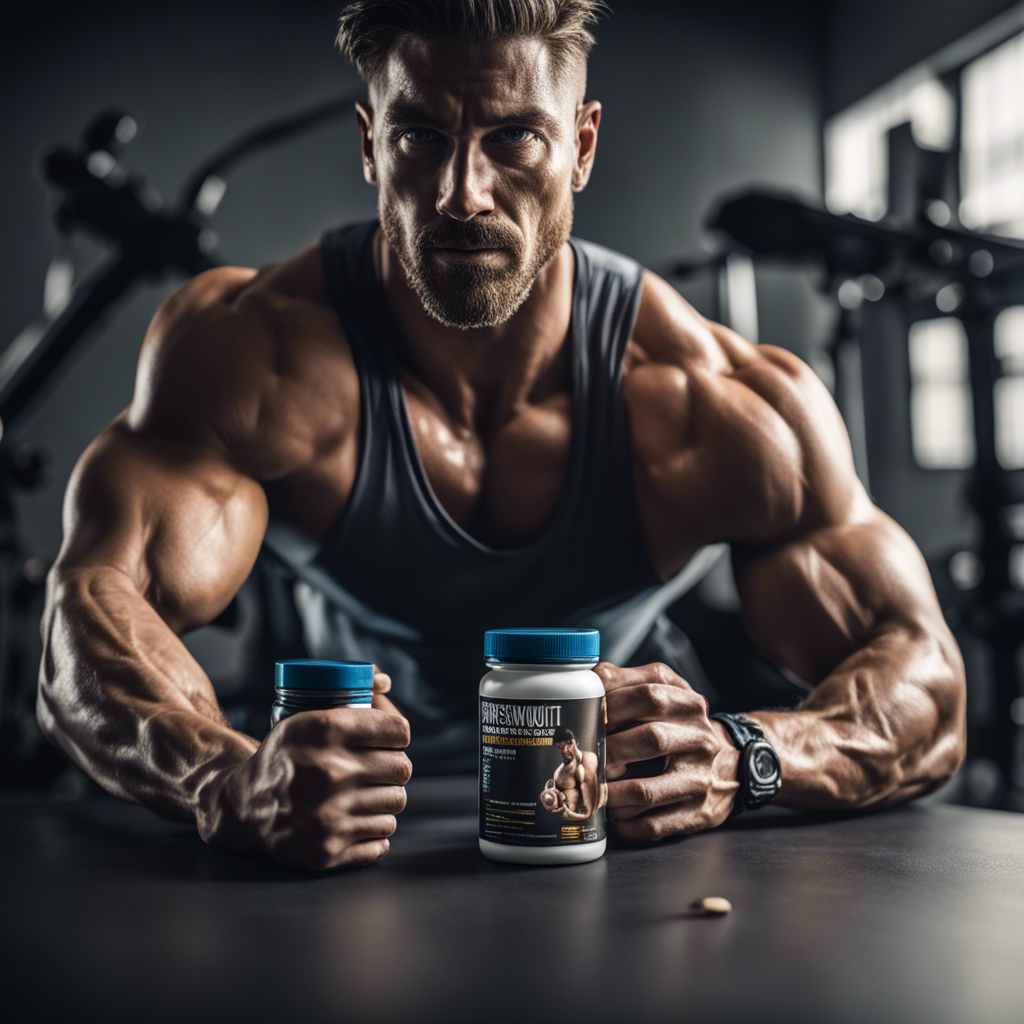Pre-Workout Supplements: Are They Safe? A Dietitian’s Brutally Honest Take
In the quest for enhanced workout performance and greater gains, many fitness enthusiasts turn to pre-workout supplements. Promising increased energy, focus, and endurance, these supplements have become a staple in both professional and amateur fitness circles. However, the question remains: Are they safe? In this article, we explore the safety of pre-workout supplements through the lens of professional dietitian advice.

Pre-workout supplements are designed to boost energy levels and enhance exercise performance. Typically, these products contain a mix of ingredients like caffeine, creatine, beta-alanine, and various amino acids. Despite their popularity, concerns about their safety persist, with reports of adverse effects ranging from mild discomfort to serious health risks. To make informed decisions, it is crucial to understand the composition of these supplements, their effects on the body, and the potential risks involved.
Understanding Pre-Workout Supplements
What Are Pre-Workout Supplements?
Pre-workout supplements are dietary formulas aimed at enhancing physical performance and energy levels during exercise. They are usually consumed 20-30 minutes before workouts and are available in various forms, including powders, capsules, and drinks. The key ingredients often include stimulants like caffeine, performance enhancers like creatine, and amino acids such as BCAAs.
The role of these ingredients is to help increase adrenaline release, optimize oxygen utilization, and delay fatigue. For example, caffeine is known for its ability to improve mental focus and stave off tiredness, making it a common component in pre-workout supplements. However, the combination of multiple stimulants can sometimes lead to an overstimulated system, with both immediate and long-term health repercussions.
The Scientific Basis
Scientific research on individual ingredients within pre-workout supplements offers insights into their effectiveness. Studies have shown that caffeine can enhance alertness and performance, and creatine is effective for short burst energy activities. However, evidence also highlights variability in response due to factors like individual tolerance levels and synergy between different ingredients.
Furthermore, many pre-workout products lack rigorous testing as a whole, raising concerns about consistency and purity. The fragmented regulatory framework around dietary supplements means that products can vary significantly between manufacturers, leading to potential discrepancies in their effects and safety.
Dietitian’s Perspective
From a dietitian’s perspective, the importance of understanding one’s own body and dietary needs cannot be overstressed. A professional can guide you on the necessity of certain supplements based on your health profile and fitness goals. For some, a natural diet rich in essential nutrients may suffice, while others with higher energy demands might consider validated pre-workout products.
Dietitians often recommend starting with lower doses to assess tolerance and avoid potential side effects, such as jitteriness, insomnia, or digestive issues. This approach aligns with the general advising of moderation and keen monitoring of the body’s responses to new dietary introductions.
Potential Health Risks of Pre-Workout Supplements
Cardiovascular Concerns
One of the primary health risks associated with pre-workout supplements is their effect on cardiovascular health. Ingredients such as high caffeine dosages can lead to increased heart rate and elevated blood pressure. Individuals with pre-existing heart conditions may face heightened risks, making medical consultation essential before use.
The market offers several safe fitness products to buy on Amazon that provide transparent ingredient lists and customer reviews, helping consumers make informed choices. Always look for supplements that have undergone third-party testing to ensure safe consumption.
Liver and Kidney Strain
Pre-workout supplements can also place significant strain on the liver and kidneys. Compounds such as niacin and creatine, commonly found in these supplements, require metabolic processing that might overstress these organs, particularly if taken in high doses or over prolonged periods.
Again, the importance of moderation and quality assurance comes into play. Consumers are advised to stick to recommended dosages and opt for products with verified claims and research-backed ingredients.
Miscellaneous Adverse Effects
Beyond cardiovascular and organ-related issues, pre-workout supplements may cause various other adverse effects, including gastrointestinal distress, hormonal imbalances, and in some cases, dependency on stimulants for energy maintenance.
Minimizing Risks
To minimize these health risks, careful selection based on personal health conditions and consultation with healthcare professionals are crucial steps. Consumers should seek dietitian advice and opt for supplements with simple ingredient profiles, avoiding those with unpronounceable additives.
Navigating the World of Fitness Supplements
Choosing the Right Products
Navigating the myriad of fitness supplements available today can be challenging. The key to choosing the right pre-workout product is to prioritize transparency and authenticity. Look for brands that provide a complete list of ingredients and have certifications from recognized regulatory bodies.
Consider turning to online platforms like Amazon, where you can analyze customer reviews and compare different products with ease. Focus on products emphasizing natural ingredients and scientific validation, bearing in mind the importance of supplement safety for your overall workout nutrition.
Alternatives to Pre-Workouts
For those wary of pre-workout supplements’ possible health risks, there are viable natural alternatives. A balanced diet rich in complex carbohydrates, proteins, and healthy fats can provide the necessary energy boost before a workout. Foods like bananas, oatmeal, and smoothies are practical pre-workout options.
Hydration plays a pivotal role in sustained energy and endurance during exercise. Water or electrolyte-packed drinks help maintain fluid balance, aiding in optimal performance and recovery, especially during intensive workout sessions.
Practical Application and Advice
From a practical standpoint, incorporating a pre-workout evaluation into your fitness routine can lead to greater benefits. Begin by monitoring your physical responses, noting any adverse effects, and adjusting dosages accordingly. Consistency in dietary habits and regular check-ins with a dietitian or nutritionist can also provide tailored advice and optimize your workout nutrition.

FAQ: Common Questions About Pre-Workout Supplements
Are pre-workout supplements safe for everyday use?
While pre-workout supplements can be used regularly by many, they are not universally safe for everyday use, especially in high doses. Regular consumption can lead to tolerance build-up, necessitating higher doses for the same effects, which can introduce health risks. Individuals should consult with healthcare providers to tailor usage to their fitness routines and health needs.
What should I look for when buying a pre-workout supplement?
When purchasing a pre-workout supplement, consider products with transparent ingredient lists and third-party testing certifications. Check for customer reviews, particularly on trustworthy platforms like Amazon, and prioritize products with a balance of natural and scientifically supported ingredients for optimal supplement safety.
Can pre-workout supplements cause dependency?
Yes, pre-workout supplements can lead to psychological dependency, particularly those containing high levels of caffeine and other stimulants. Users may feel reliant on these products for energy and performance, highlighting the need for mindful use and consideration of natural energy sources.
Are there any natural alternatives to pre-workout supplements?
Yes, natural alternatives include energy-boosting foods like bananas, nuts, and whole grains. Hydration and restful sleep are also crucial in maintaining high energy levels. Additionally, a well-balanced diet tailored to your fitness needs can offer the requisite energy and nutrition for workouts.
Do pre-workout supplements improve workout performance?
Pre-workout supplements can enhance workout performance by reducing fatigue and improving focus and muscle output. However, the effectiveness varies among individuals based on sensitivity and the specific blend of the supplement. It’s important to evaluate personal response to different products through trial and experience.
Conclusion
In conclusion, pre-workout supplements offer potential benefits in enhancing exercise performance, though they are not without health risks. Comprehensive understanding and cautious use can mitigate adverse effects, reinforcing the importance of personalized dietary and health strategies in fitness routines.
The fitness supplements market presents a wide array of choices, each promising unique benefits. However, the core emphasis should remain on safety, accurate information, and professional guidance. It’s imperative to approach these products with a discerning mind, coupling them with balanced nutrition and lifestyle choices for optimal fitness outcomes.
For those considering pre-workout supplements, consulting with dietitians and fitness experts can provide personalized insights and prevent potential complications. Thoughtful integration of supplements supplement can thus form a beneficial component of a broader health regimen.
- Understanding Safe Fitness Products: How to Choose the Right Supplements
- Pre-Workout Nutrition: What to Eat Before Exercise for Optimal Performance
- Exploring Natural Pre-Workout Alternatives: Foods to Boost Energy and Performance



